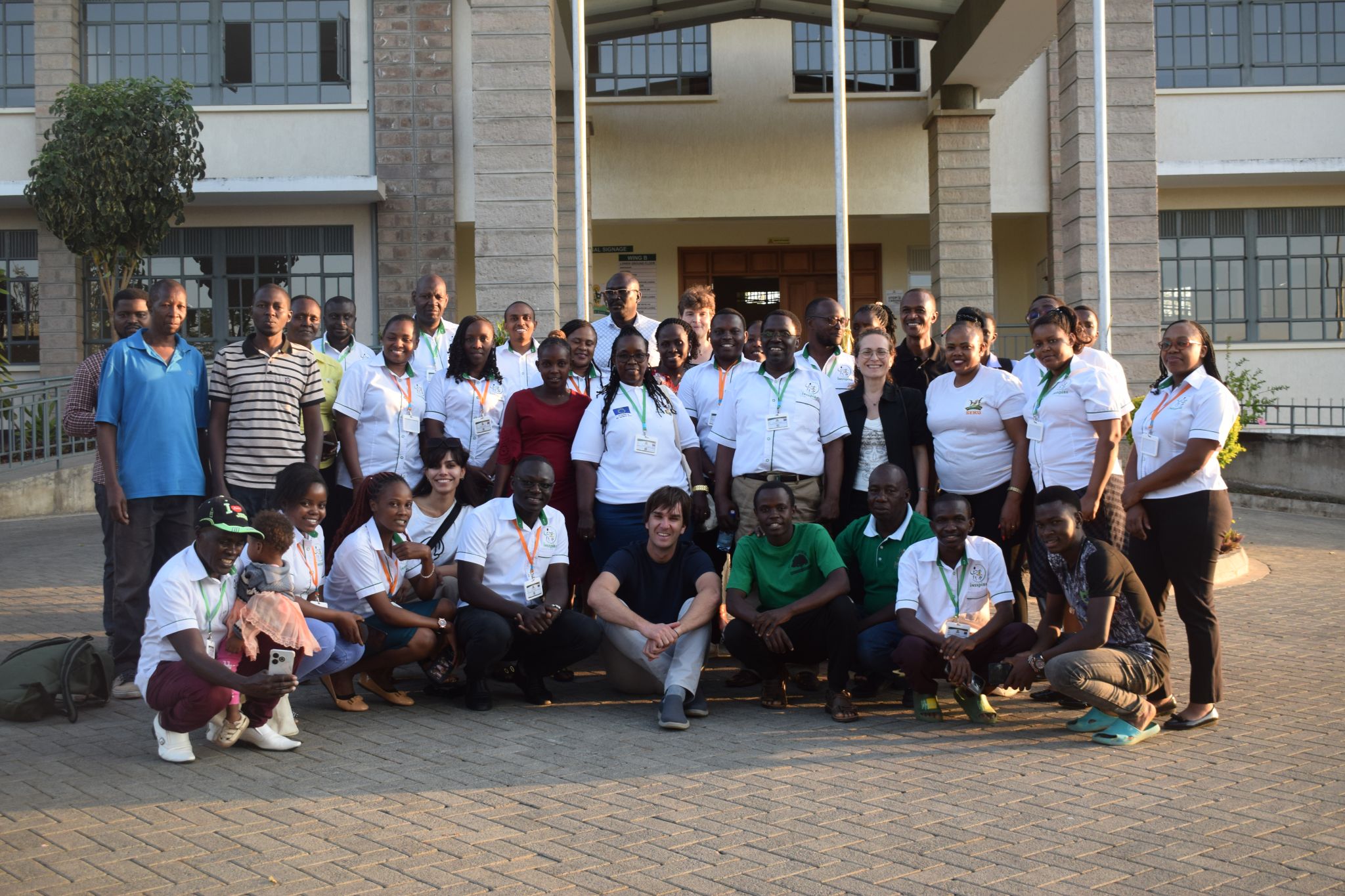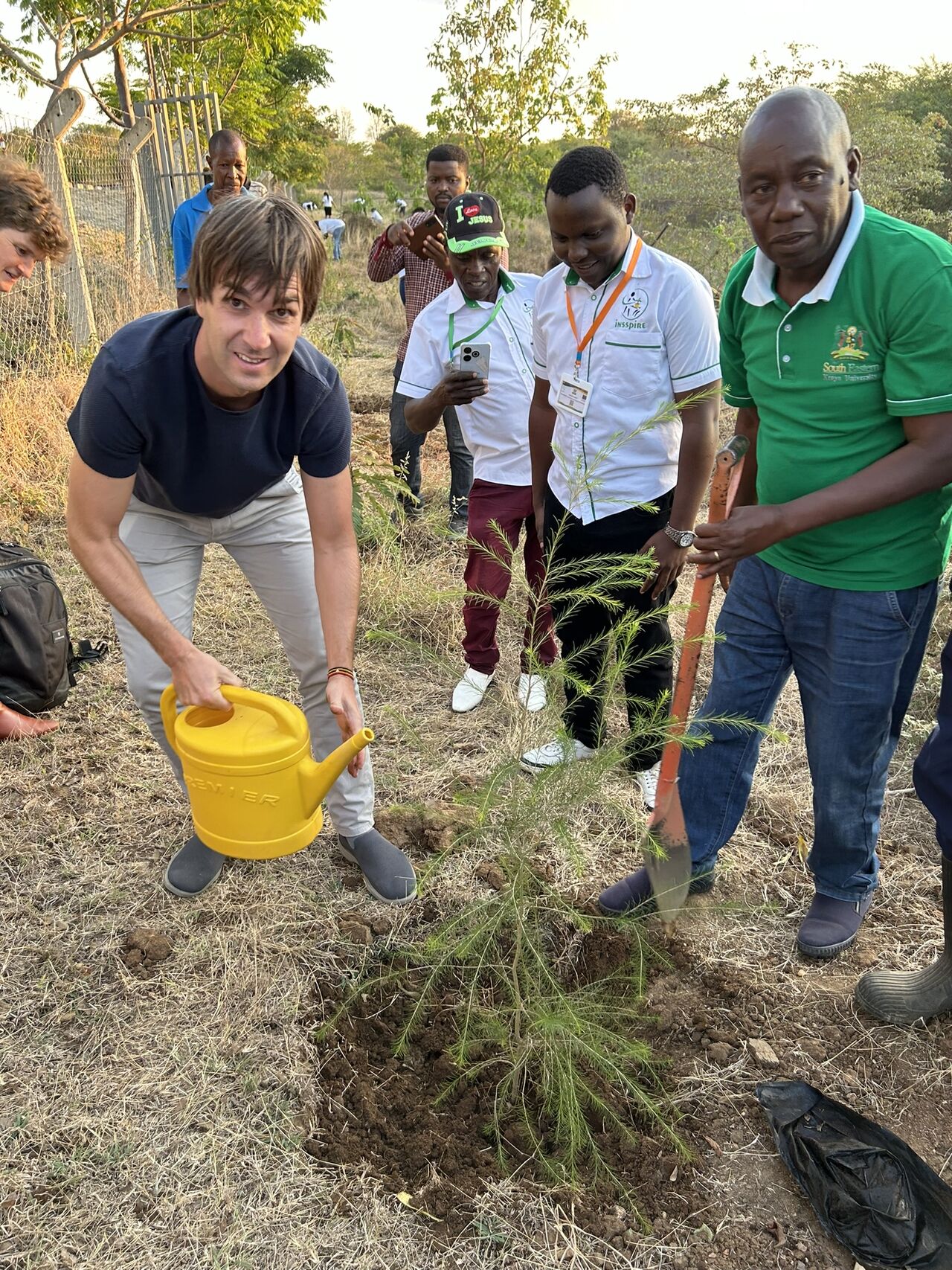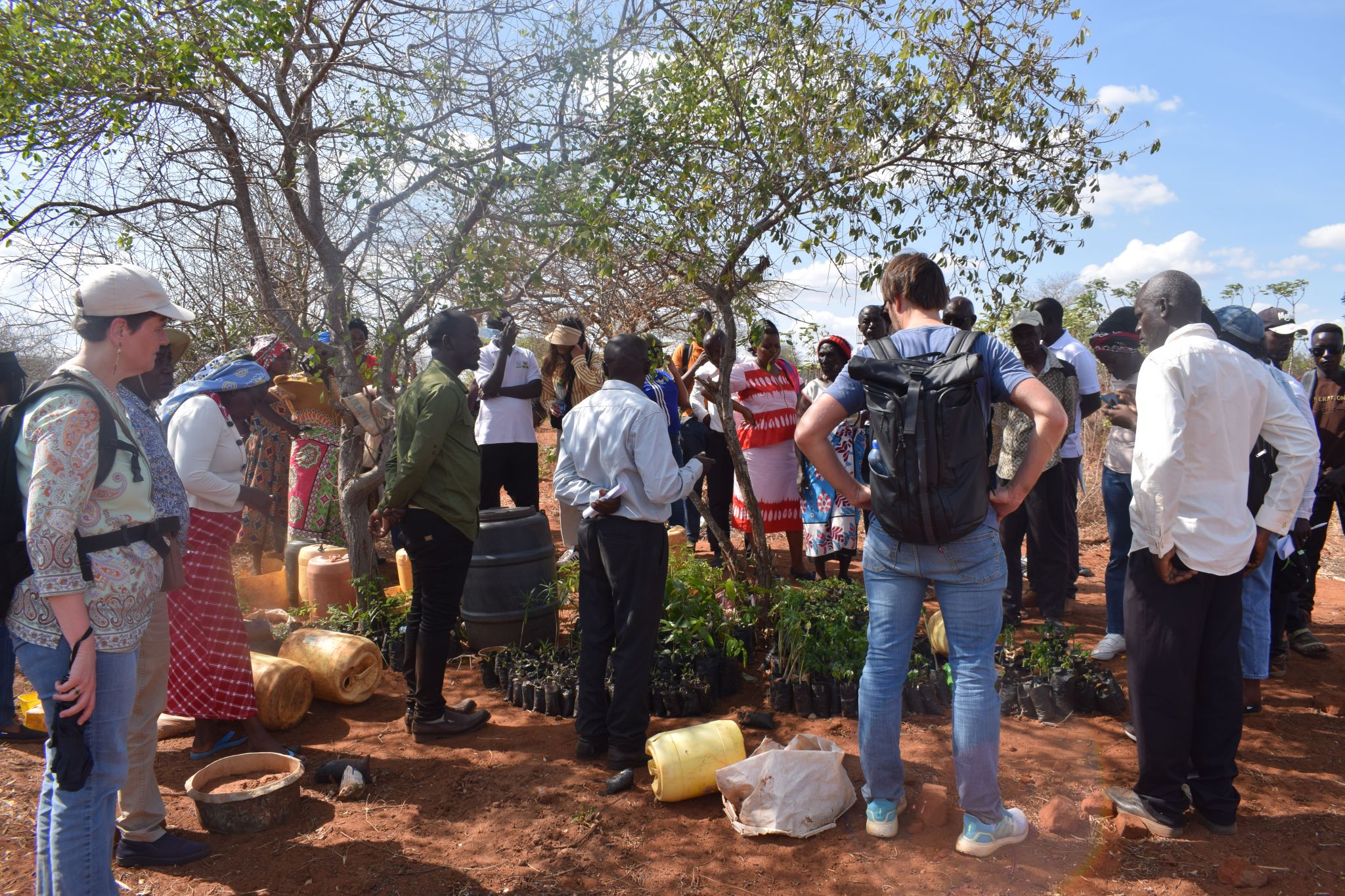23.10.2024
Jambo from Wote, Kenya!
In a world where climate change and food security present growing challenges, international and multilateral partnerships are more important than ever. IRI UL participates in the INSSPIRE Erasmus+ project, which promotes such collaborations to improve research and education on food systems and climate resilience. This programme brings together African and European universities in a South-South and triangular collaboration with the goal of transforming the sustainability of food systems across Kenya and Uganda. The project is preparing students for success in the global labour market by strengthening educators’ capacities, improving academic curricula, and adopting experiential learning methodologies.
This was IRI UL’s third visit to the Eastern Africa region and second time in Kenya. Over five intensive days of fieldwork and workshops, we had the privilege of collaborating with dear colleagues from universities across Uganda, Kenya, Ghana, and Benin. Together, we explored curriculum enrichment and Real-life Learning Lab implementation, gaining valuable insights into the current progress and future prospects of these initiatives within local university contexts.
What made our trip even more enriching was visiting the remote Kyavonda community. Experiencing their way of life and witnessing the everyday struggles they face, i.e., the challenges that have become so distant from our own realities. We highly recommend watching the documentary Thank You for the Rain (https://thankyoufortherain.com/), which tells the powerful story of Kisilu Musya, a farmer from the Kyavonda community, whom we had the privilege to collaborate with during the past five days. The film captures his journey from hardship to empowerment in the face of the rapidly changing climate affecting his home.
Beyond the regular work, we also shared special moments—telling stories, laughing, offering positive critiques, enjoying delicious Kenyan food, commuting on local buses, and traditional dancing. One of the unforgettable experiences, worth to mention is planting IRI UL’s very own tree (the bottle brush), marked with a sign explaining who planted it, why, and when.
This visit was not just a professional exchange but also a deeply personal experience that left a lasting impression. The partnerships we have built through the INSSPIRE project and beyond are more than collaborations—they are the seeds of positive change, just like the tree we planted in Kyavonda. We look forward to continuing this important work, nurturing these connections, and witnessing how these initiatives grow and thrive in the years to come. Together, we are not only transforming food systems but also empowering communities to face an uncertain future with resilience and hope.



